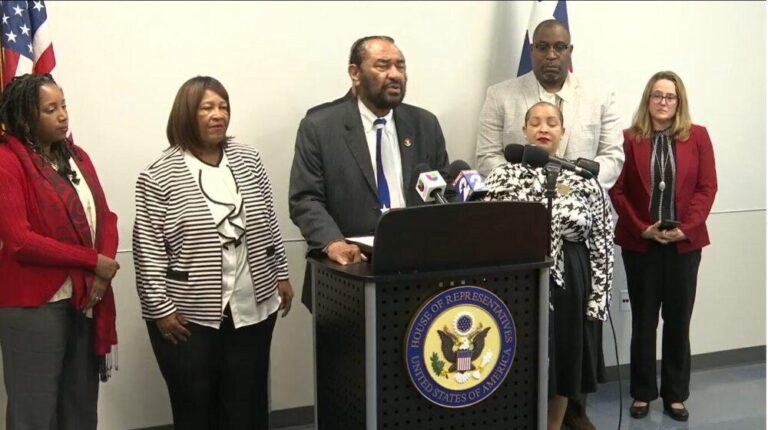How Federal Budget Reductions Could Reshape Houston’s Workforce and Retiree Support Systems
Houston is bracing for significant challenges as anticipated cuts in federal funding threaten to destabilize essential public services and economic support frameworks. These fiscal adjustments could profoundly affect healthcare, education, infrastructure, and social welfare programs that many Houstonians depend on daily. This article explores the potential ramifications of these budgetary changes on Houston’s labor force and retired population, highlighting the concerns voiced by local leaders and the community’s possible responses.
Job Security at Risk in Houston’s Vital Economic Sectors
Economic uncertainty looms over Houston’s key industries as federal budget reductions threaten to disrupt sectors critical to the city’s prosperity, including energy, healthcare, and public transit. The stability of thousands of jobs, a cornerstone of Houston’s workforce confidence, is now uncertain. Workers in these fields may face layoffs or diminished hours, while retirees reliant on consistent pension funding could experience benefit reductions. Industry experts warn that these disruptions could cascade, impacting local businesses and the broader economic ecosystem.
Several sectors are particularly vulnerable to federal spending cuts:
- Energy Industry: Curtailment of grants and subsidies may delay innovation and development in renewable energy projects, threatening thousands of related jobs.
- Healthcare Sector: Budget constraints could lead to workforce shortages and diminished patient care capacity in hospitals and clinics serving Houston’s diverse communities.
- Public Transportation: Reduced federal investment may halt expansion and maintenance efforts, affecting both employment and commuter accessibility.
| Industry | Anticipated Consequences | Jobs Potentially Affected |
|---|---|---|
| Energy | Project delays, funding shortfalls | 5,000+ |
| Healthcare | Staff reductions, limited services | 3,200+ |
| Public Transit | Suspended expansions, maintenance cuts | 1,400+ |
Retiree Benefits and Social Programs Face Uncertain Future
Houston’s senior population is confronting potential setbacks as federal budget cuts threaten to reduce critical benefits and social services. Many retirees depend heavily on Medicare and Social Security, which may experience slower growth or benefit reductions, complicating their ability to manage healthcare and living expenses. Additionally, federally supported senior centers and community initiatives could face funding shortages, limiting access to vital wellness and nutrition programs.
Key areas vulnerable to funding reductions include:
- Decreased support for Supplemental Nutrition Assistance Program (SNAP) targeting elderly residents
- Cutbacks in Medicaid services essential for long-term care
- Reduced funding for affordable housing projects aimed at seniors
- Lower subsidies for public transportation, impacting senior mobility
| Benefit | Possible Effects | Number of People Impacted |
|---|---|---|
| Medicare | Higher premiums and co-payments | 300,000+ |
| Social Security | Reduced cost-of-living adjustments | Approximately 250,000 |
| Community Services | Fewer meal programs and wellness activities | 60,000+ |
Broader Economic Consequences and Workforce Shifts in Houston
The reduction in federal funding is poised to trigger a complex transformation within Houston’s labor market, affecting both active workers and retirees. Essential public services—including transportation, healthcare, and social welfare programs—may face significant cutbacks, directly influencing employment opportunities in these sectors. Service-oriented roles, especially those dependent on government contracts and grants, could see heightened vulnerability, potentially increasing unemployment and necessitating workforce retraining.
Experts anticipate several cascading effects on Houston’s economy:
- Decline in consumer spending as affected employees reduce expenditures
- Expansion of workforce retraining initiatives to align skills with private sector demands
- Greater pressure on retirement systems and social safety nets
| Sector | Estimated Job Loss Risk (%) | Main Impact |
|---|---|---|
| Public Transit | 25% | Job cuts, service reductions |
| Healthcare Support | 18% | Funding decreases, facility closures |
| Social Services | 30% | Program cuts, layoffs |
Proactive Measures for Policymakers and Community Advocates
To mitigate the adverse effects of shrinking federal budgets, a comprehensive strategy is essential. Advocates and policymakers should focus on targeted lobbying efforts that emphasize the economic benefits of federal programs to Houston’s representatives and committees. Building coalitions with business leaders, labor organizations, and community groups can strengthen advocacy efforts to protect critical funding. Additionally, exploring innovative financing solutions such as public-private partnerships and diversified revenue streams can help cushion the city against federal budget fluctuations.
Transparency and evidence-based advocacy are crucial. Producing detailed economic impact analyses that demonstrate how federal investments translate into jobs and services can influence funding decisions. Moreover, conducting thorough program evaluations will help identify opportunities to optimize resource allocation without sacrificing service quality. The table below summarizes key strategies for effective response:
| Approach | Description | Anticipated Benefit |
|---|---|---|
| Focused Lobbying | Engage directly with federal policymakers and committees | Heightened awareness and protection of local funding |
| Public-Private Collaborations | Mobilize private capital to complement public resources | Improved financial stability and project sustainability |
| Data-Driven Advocacy | Leverage impact studies to guide funding appeals | Informed decision-making and stronger funding cases |
| Program Assessment | Identify efficiencies and cost-saving opportunities | Optimized expenditures without service loss |
Final Thoughts
As Houston navigates the potential fallout from federal funding reductions, both workers and retirees face a pivotal moment. The anticipated effects on employment, social services, and retirement benefits highlight the critical need for informed action and strategic planning. Local leaders and policymakers must work collaboratively to protect the city’s economic foundation and ensure the well-being of its residents. Monitoring these developments closely will be essential as their full impact unfolds across the Houston metropolitan area.

